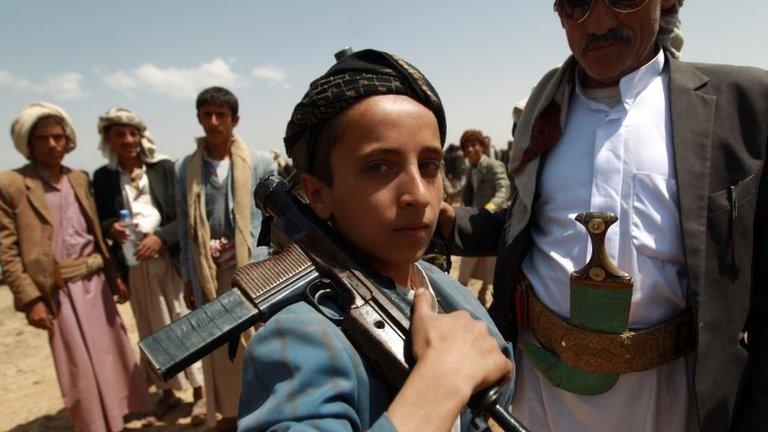Yemen war: Deadly infighting rages in Aden
- Published
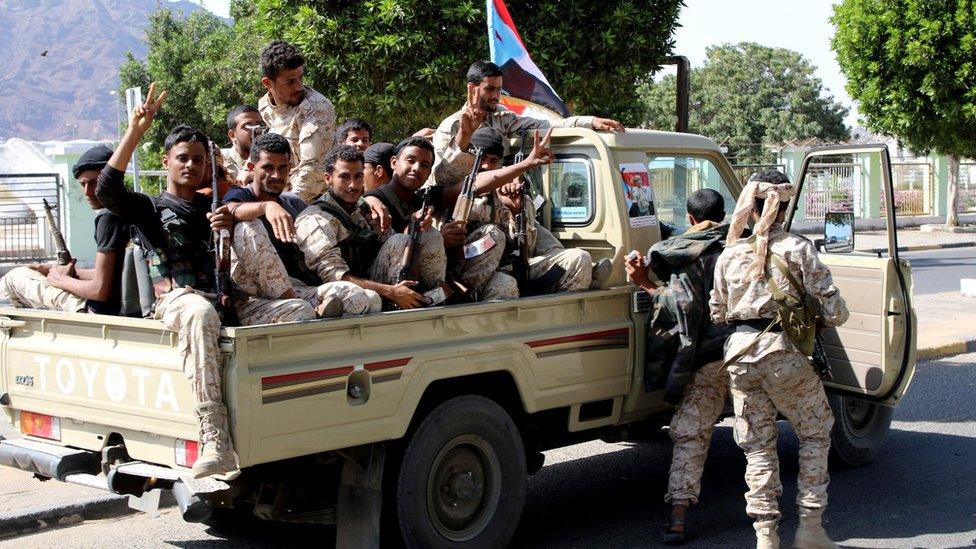
Southern separatists are reported to have sent for reinforcements from neighbouring provinces
Clashes between forces loyal to Yemen's president and southern separatists have continued in Aden, with both sides now using tanks and heavy artillery.
The interior ministry had earlier said calm had been restored and had urged people to go about their daily lives.
On Sunday, separatist units - who seek independence for south Yemen - seized government buildings in what the prime minister called an attempted coup.
The fighting is so far reported to have left at least 21 people dead.
Yemen's government has been based in Aden since 2015, when President Abdrabbuh Mansour Hadi and his cabinet were forced to flee the capital Sanaa by the rebel Houthi movement and its allies.
A Houthi assault on the city that year prompted a Saudi-led multinational coalition to launch a military campaign to defeat the rebels. Since then, more than 9,245 people have been killed and 3 million displaced, according to the UN.
Aren't the separatists and government supposed to be allies?
Their supporters have fought alongside each other over the past three years but it has always seemed an uneasy alliance.
Before the conflict, separatist sentiment had been running high in the south, which was an independent state before unification with the North in 1990.
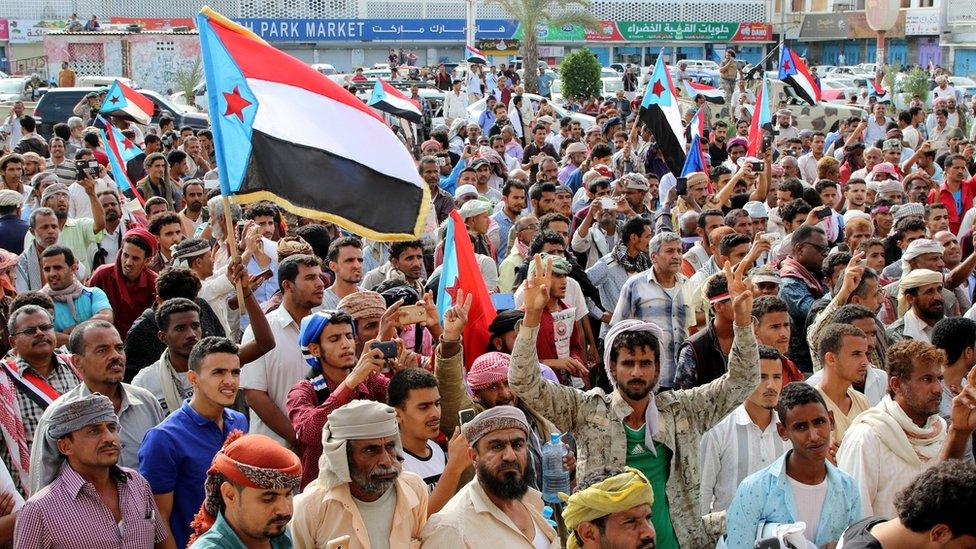
The separatists had given the prime minister until Sunday to resign
Although the separatists were suspicious of Mr Hadi - who is a southerner but supports continued unity with the north - they joined forces to prevent the Houthis capturing Aden and drive them out of most of the south.
Relations between the two sides remain strained, however, and on occasion spark armed clashes.
The situation has been made more complex by divisions within the Saudi-led coalition. Saudi Arabia reportedly backs Mr Hadi, who is based in Riyadh, while the United Arab Emirates is closely aligned with the separatists.
How did the latest infighting start?
Heavy clashes erupted on Sunday after the expiry of a deadline set by the separatist Southern Transitional Council (STC) for a cabinet reshuffle, including the removal of Prime Minister Ahmed bin Daghar.
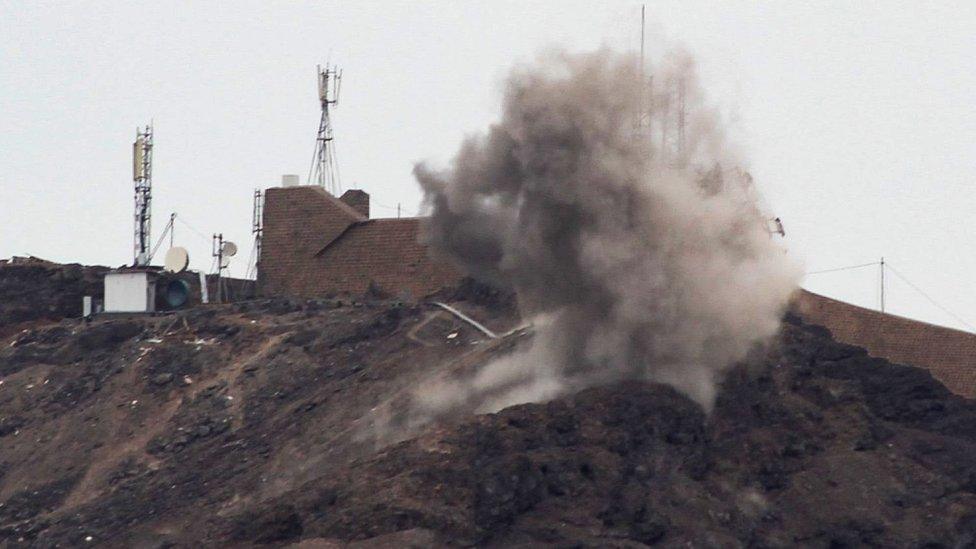
The fighting has spread throughout the central Khor Maksar and Crater districts
The council, formed last year by former Aden governor Aidarous al-Zubaidi, accused the government of failing to provide essential services because of corruption and mismanagement.
The UN says small-arms and heavy gunfire was heard in the morning near its offices in the Khor Maksar district, and then spread towards the Crater district, where the presidential palace is located. STC supporters reportedly took control of some official facilities, including a military base in Khor Maksar.
Twelve people were killed and more than 130 wounded, according to the state-run Saba news agency.
The prime minister denounced what he called a "coup" in Aden "against legitimacy and the country's unity". He also urged the coalition to intervene.
Allow X content?
This article contains content provided by X. We ask for your permission before anything is loaded, as they may be using cookies and other technologies. You may want to read X’s cookie policy, external and privacy policy, external before accepting. To view this content choose ‘accept and continue’.
The fighting subsided on Sunday evening after President Hadi and Mr Bin Daghar called on their forces to cease fire and return to their barracks.
But fresh clashes were reported on Monday morning, with heavy gunfire heard around Crater. Military sources told AFP news agency that five separatists and four soldiers had been killed.
The STC was also reported to have sent reinforcements from the provinces of Marib and Abyan, while a government source told Reuters news agency that it would order soldiers to leave frontlines with the Houthis to stop the fighting.
How has the international community reacted?
The Saudi-led coalition initially declined to comment on the fighting, saying its priority was to deliver humanitarian aid to Yemen.
But on Monday, spokesman Col Turki al-Maliki called on the separatists to show "restraint" and to hold talks with "the legitimate government". He also urged the government to "look into" the demands of the separatists.
Diphtheria is returning to Yemen as a result of the country's civil war
Outgoing UN envoy Ismail Ould Cheikh Ahmed also urged all parties to return to "calm and dialogue".
UN officials in Aden warned that the security situation was restricting their operations, external. Humanitarian flights into Aden were on hold due to the close of Aden's airport and a World Food Programme vessel remained in international waters off Aden due to the closure of the sea port, they said.
The conflict in Yemen and blockade by the coalition has left 22.2 million people in need of humanitarian aid, created the world's largest food security emergency and led to a cholera outbreak that is thought to have killed 2,244 people since April.
- Published22 January 2018
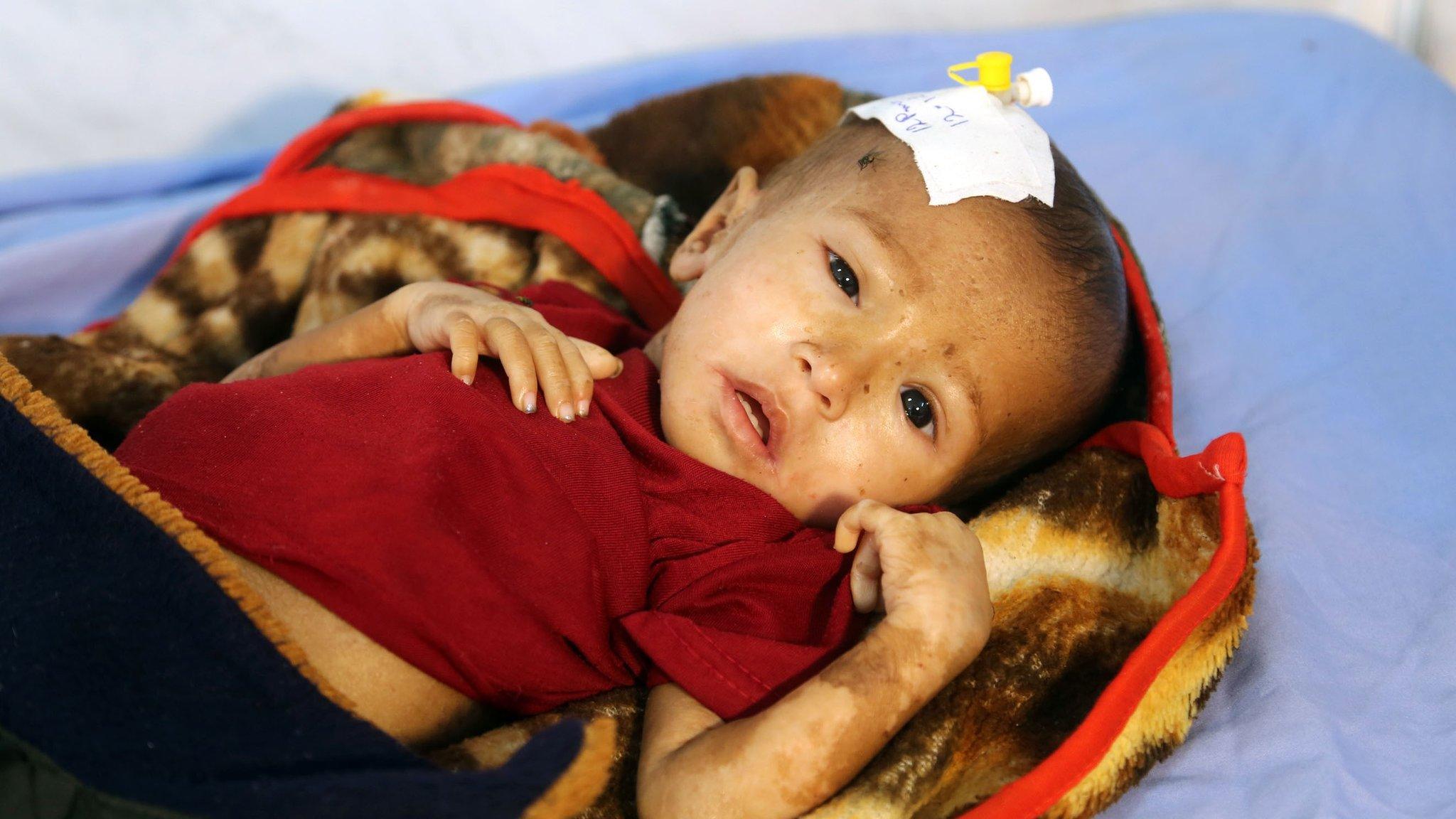
- Published22 December 2017
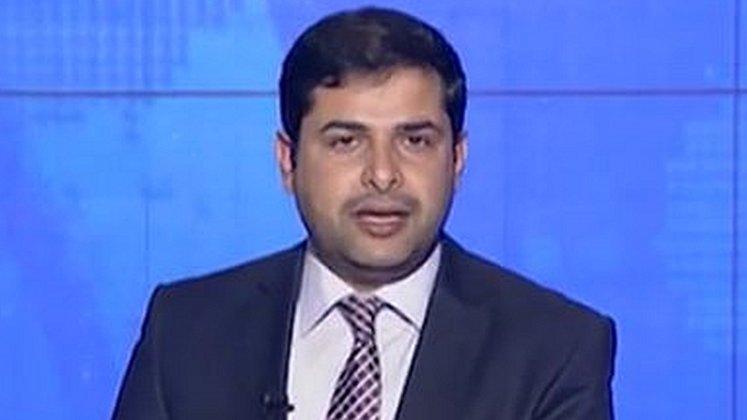
- Published14 April 2023
